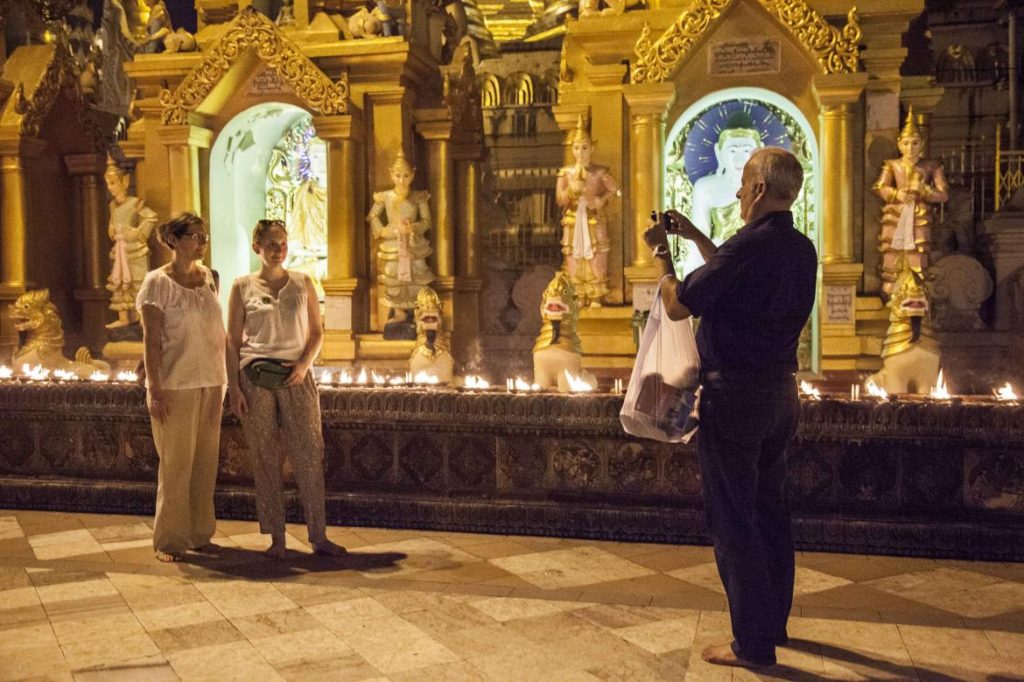By KYAW YE LYNN | FRONTIER
YANGON — Foreign media coverage of the situation in Rakhine State is contributing to a downturn in foreign tourist arrivals, with some visits already cancelled, the vice-chairman of the Myanmar Tourism Federation said on Thursday.
U Khin Aung Tun indicated that some travellers have also been deterred by travel advisories issued by their governments.
They include Britain, which has advised against all but essential travel to Rakhine, except its southern townships, including Thandwe, in which popular Ngapali beach is located.
An estimated 370,000 Muslims have fled Rakhine for Bangladesh since the military launched a counter-insurgency operation in response to a series of coordinated attacks by Islamic militants on August 25.
Support more independent journalism like this. Sign up to be a Frontier member.
The exodus of the Rohingya community and the unfolding humanitarian crises in Bangladesh and in northern Rakhine, where the violence had halted humanitarian aid deliveries, have attracted much attention from the international community and big media organisations, Khin Aung Tun told Frontier.
“Powerful international media such as CNN and BBC have consistently reported unverified reports of abuses, and that has had a negative effect on the country’s reputation,” he said.
Members of the MTF had received many inquiries from clients and partners asking if the country was safe for tourists, Khin Aung Tun said.
“We replied that only three townships in Rakhine State were affected by the recent events, while the whole country is safe to travel,” he said.
Although some travel companies had cancelled bookings to conflict-affected areas of Rakhine, Ngapali beach and the ancient capital at Mrauk-U remain popular destinations for foreign tourists, said U Kaung Sithu, sales manager at Yangon-based 7Days Travel & Tours Co.
“Foreigners, especially Germans, are still visiting Ngapali and Mrauk-U as those areas are not affected by the conflict,” he told Frontier on September 13.
“We don’t see it (Rakhine situation) having much effect on the tourism industry,” Kaung Sithu said.
Mr Stefan Scheerer, assistant general manager at Khiri Travel, said the crisis in Rakhine was having a growing negative impact on travel to other parts of Myanmar that remained peaceful.
“Despite the ever-existing restricted areas for tourism, Myanmar continues to be one of the safest places for travellers,” Scheerer told Frontier in an email interview on September 13.
“We all hope that this situation will very soon come to an peaceful denouement for everyone affected,” he said.
Travel operators hope the situation will be resolved soon.
“The longer the crisis remains, the bigger the impact on the country,” said Khin Aung Tun.







